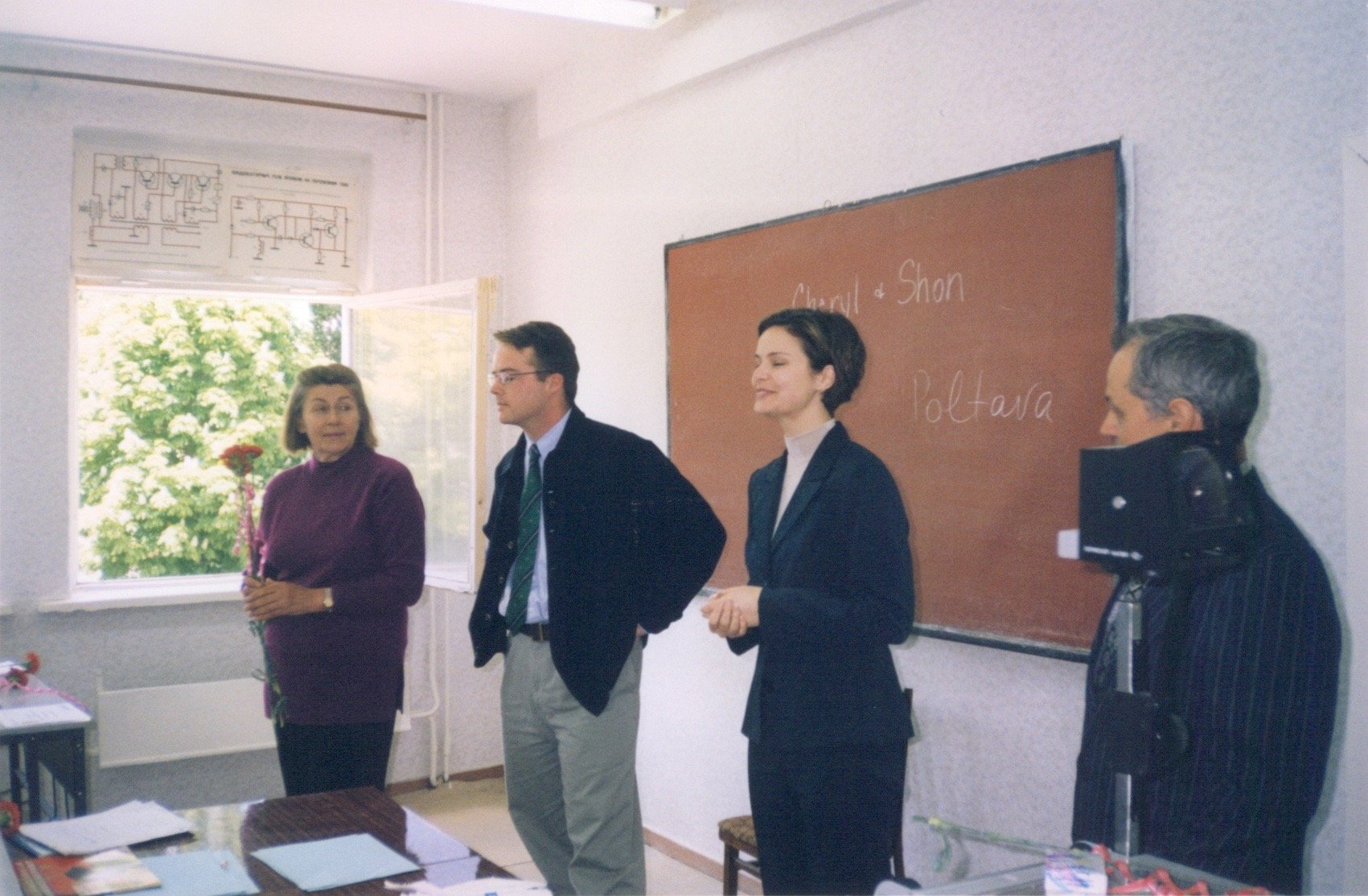
Our Story
History

Fall of the Berlin Wall, Germany, 1989
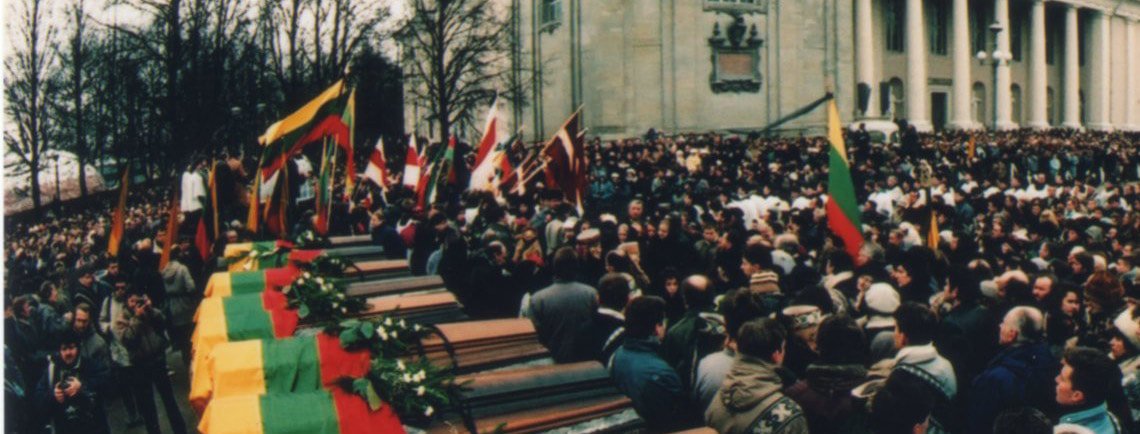
Soviet Troops in Vilnius, Russia, 1991
Founded
May 1991 marked the beginning of the LEADER Project. Two Western (now the Ivey School of Business) Masters of Business Administration (MBA) students Scott Hellofs and Paul Fitzgerald initiated Project USSR (as the LEADER Project was then called) to respond to the challenges in the Former Soviet Union. The students approached Professor Paul Beamish, Director of the Western Business School's Centre for International Business Studies, for financial support and advice.
Professor Beamish established a number of criteria for the Project, in that it should provide students with opportunities which complemented the business school's existing exchange programs, be administered, and run by students, and have a full-time faculty advisor. Professor Beamish also stressed that the program needed to be large enough to be worth the school's efforts, yet modest enough to be sustainable. Growth, if it did occur, should take place slowly.

Vilnius, Lithuania, 1995

��������������������������������Classroom, Project USSR, 1991

Nizhny Tagil, Russia, 1992

Site Team, Moscow, 1992

Vilnius, Lithuania, 1995

Women’s Leadership Group, Moscow, 1991

East Meets West, Moscow, 1991
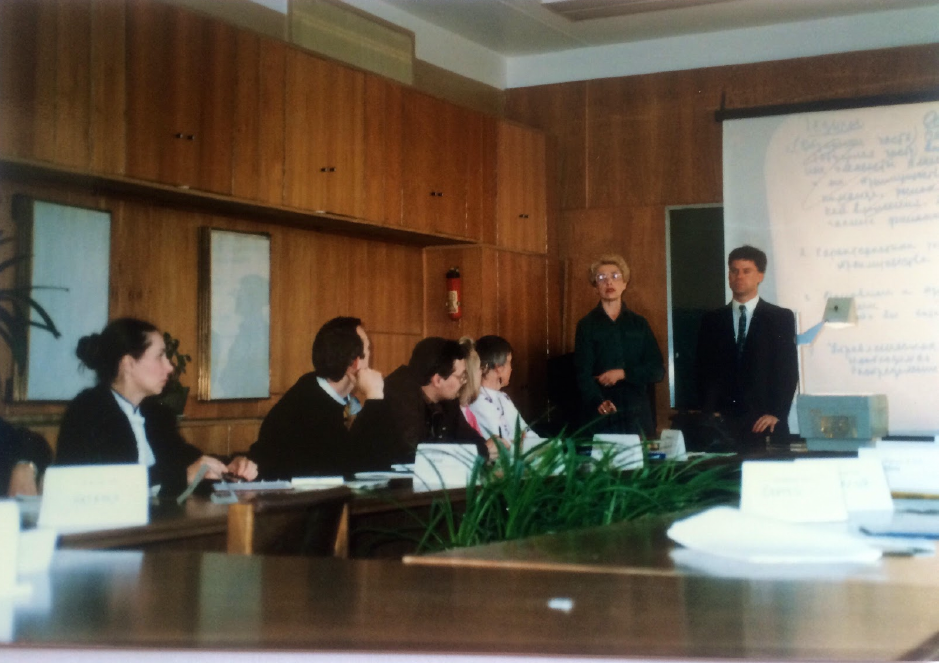
Chris Albinson Teaching, Russia, 1992

LEADER Team, Russia, 1992
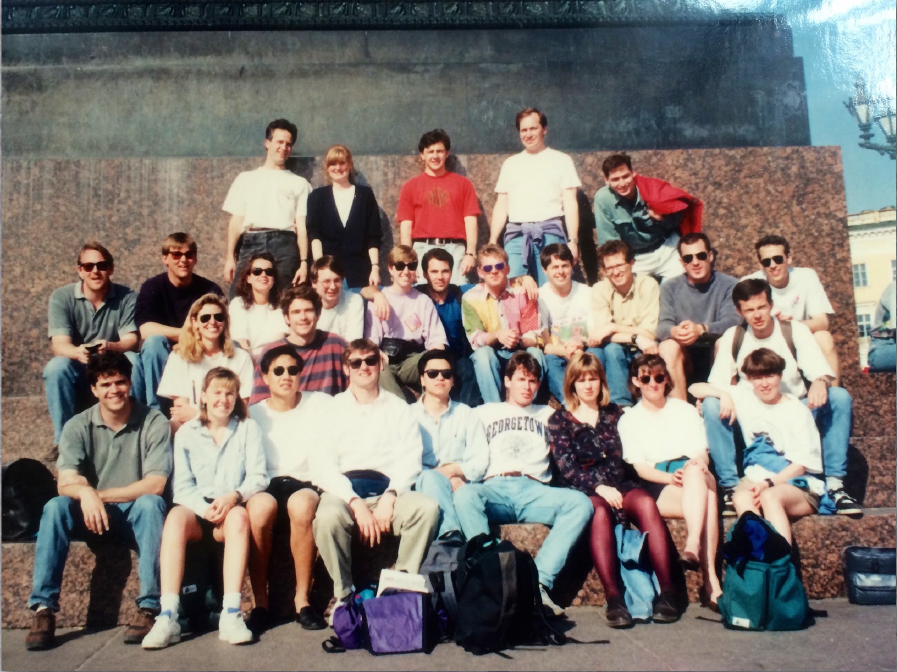
Site Team, Russia, 1993
1990s
In its pilot year, 27 Volunteer Instructors, paying their own way, taught the basic business skills to a group of 175 selected Soviet officials, business managers, and hopeful students at various institutions in Leningrad and Moscow. The Project generated widespread, positive reaction in many countries. It was the subject of numerous media articles involving interviews with Western Participants, and generated opportunities for some Participants to undertake entrepreneurial ventures or consulting in the Former Soviet Union.
A year later much had changed. The Soviet Union had dissolved, and Project USSR (renamed the LEADER Project: Leading Education in Eastern Europe) sent 51 Western MBAs to teach business in former Soviet republics. The Project expanded its partnerships to include Minsk, Belarus and Vilnius, Lithuania. The Canadian Department of External Affairs (CIDA) provided two full years of funding that allowed the Project to grow rapidly. By 1993, there were 61 Canadian Participants, including Instructors and case writers, and the number of students being taught exceeded 600.
The LEADER Project would continue to expand into new sites and additional countries like Latvia, Moldova, and Ukraine. An extension of the Project also took several LEADER instructors to Mongolia in 1993 to deliver a similar course with support from the World Bank. By 1994, the Project had expanded to 7 sites.
Throughout the 1990’s LEADER course approach was unique for Eastern Europeans and the curriculum was loosely modelled after Western's undergraduate Introduction to Business course. Language was a considerable barrier for Participants and Instructors and each teaching team was typically assigned a translator who was hired by the local partner.
During the program, Participants would gain knowledge of finance, marketing, and general management - all the skills they needed to know to run a business. The program led up to a final Project, which involved completing a business plan. Students would earn a certificate of accomplishment for their successful participation in the program.
With the Russian economy transforming into a free market system, LEADER looked to broaden its scope and identify new opportunities abroad to create impact. With a new mission to instill an entrepreneurial culture around the world and give communities the tools they need to create self-sustaining businesses, LEADER rebrands itself into "Leading Education and Development in Emerging Regions" - a brand that still persists today. In 1999, the first LEADER Constitution was officially ratified.

Classroom, Cuba, 2002

LEADERites and students, Irkutsk, 2009

LEADERites with Site Partner, Yekaterinburg, 2009
2000s
The beginning of the new millennium brought a broadening of the LEADER Project’s scope in content and geography.
The contents of the LEADER teaching program began to shift to a focus on entrepreneurship. The course still taught business fundamentals through the case method, but now over the course of only two weeks. Through a key partnership established in 2002 with the Pierre L. Morrissette Institute for Entrepreneurship (IFE) at Ivey, LEADER's curriculum was bolstered to provide maximum value for participants. The new focus on entrepreneurship has enabled LEADER to meet the current needs of the developing economies in which it taught. It also allowed the Project to expand its audience to invite local, young entrepreneurs into the classroom, in addition to traditional university students.
In 2003, LEADER began the Entrepreneurial pilot course, as a seven-day intensive course in the Ukraine at the Agro-Soyuz development farm in co-operation with the International Finance Corporation. CIDA also rejoined the LEADER Project as a partner in 2003, beginning a three-year $105,000 commitment to help fund operations.
In 2002 and 2003, LEADER left Eastern Europe for the first time since our previous visit to Mongolia. Cuba was the new destination, with pilot projects run in Las Tunas, Holguin and Bayamo. LEADER also continued to expand into Europe with new sites in additional cities in Moldova, Belarus, and Russia.
These many new initiatives have kept the LEADER Project invigorated, aided by the establishment in 2003 of a LEADER Advisory Board. The Advisory Board consists of members of the broader LEADER community, including past participants and people with strong professional experience.
LEADER managed to forge its first lasting corporate sponsorship relation with Aeroplan in 2006. Matching points donations, donating annual miles, and permitting several Aeroplan employees the opportunity to travel with LEADERites to teach as Instructors on site have all been part of the partnership’s history. Aeroplan generous support has enabled a portion of LEADERites to travel on points which has significantly reduced operational costs.
In 2007, with the shift to a one-year MBA program at the Richard Ivey School of Business, the LEADER Project involved Honours of Business Administration (HBA) students with a permanent intention for the first time. During this time, the Advisory Board took an active strategic role in ensuring that the Project would continue to thrive. By 2008, HBAs made up approximately 50% of LEADER's Instructor base and began to take on the role of Executive Director of the Project.
The LEADER Project also permanently shifted its curriculum focus to a two-week entrepreneurship model, which it has maintained through to the present date. This shift in focus has been characterized by the deepening relationship of a key partnership with the Pierre L. Morrissette Institute for Entrepreneurship, which was cemented with Eric Morse, Head of the Institute, joining the Advisory Board in 2008. While the Project continues to teach the fundamentals of business in a case-based atmosphere, the newly developed curriculum module fully integrates the instrumental tools of entrepreneurship. This has enabled LEADER to better meet the current needs of the developing economies in which we teach. It has also included the introduction of local, young entrepreneurs to the classroom where LEADERites provide coaching services to these entrepreneurs’ local businesses.
In 2008, the LEADER Endowment Fund was created as a joint initiative of the Executive Directors, the Advisory Board Chairman, and the Head of the Institute for Entrepreneurship. The LEADER Endowment Fund was seeded with an initial $50,000 investment from $40,000 from a contingency fund that had been established but not used since the Project was last funded by CIDA and an additional $10,000 investment from Dean Carol Stephenson. The Endowment Fund is managed by Ivey Advancement and held with the University of Western Ontario. Strategic investment withdrawal decisions of the Endowment are at the sole discretion of the LEADER Advisory Board. Through investment returns and donation growth, the Endowment Fund stands at more than $250,000 today.
See Darwin Smith’s look back on LEADER in 2007 here.

Alumni Reunion Event at Steamwhistle Brewery, Toronto, 2013

Alumni Reunion Event at Steamwhistle Brewery, Toronto, 2013

Alumni Reunion Event at Steamwhistle Brewery, Toronto, 2013

Alumni Reunion Event at Steamwhistle Brewery, Toronto, 2013

Alumni Reunion Event at Steamwhistle Brewery, Toronto, 2013
2010s
In the most recent decade, at the Board’s strategic direction and with financial support from the Endowment Fund, the LEADER Project attempted to systematically transform its site roster profile from its legacy university sites to better support its entrepreneurial model.
Focusing on the creation of new sites in regions where the need for our program is present but the conditions for entrepreneurism to succeed are high, the focus has been on improving our programing impact. Since 2008, 13 new pilot sites have been established, in 13 different countries, and across 5 continents to develop our current global site roster. While this has been a departure from our original home in the former Soviet Union, the LEADER Project has evolved throughout the course of the past three decades in pursuit of continuous improvement of the impact value that the program brings to the regions in which we coach and teach.
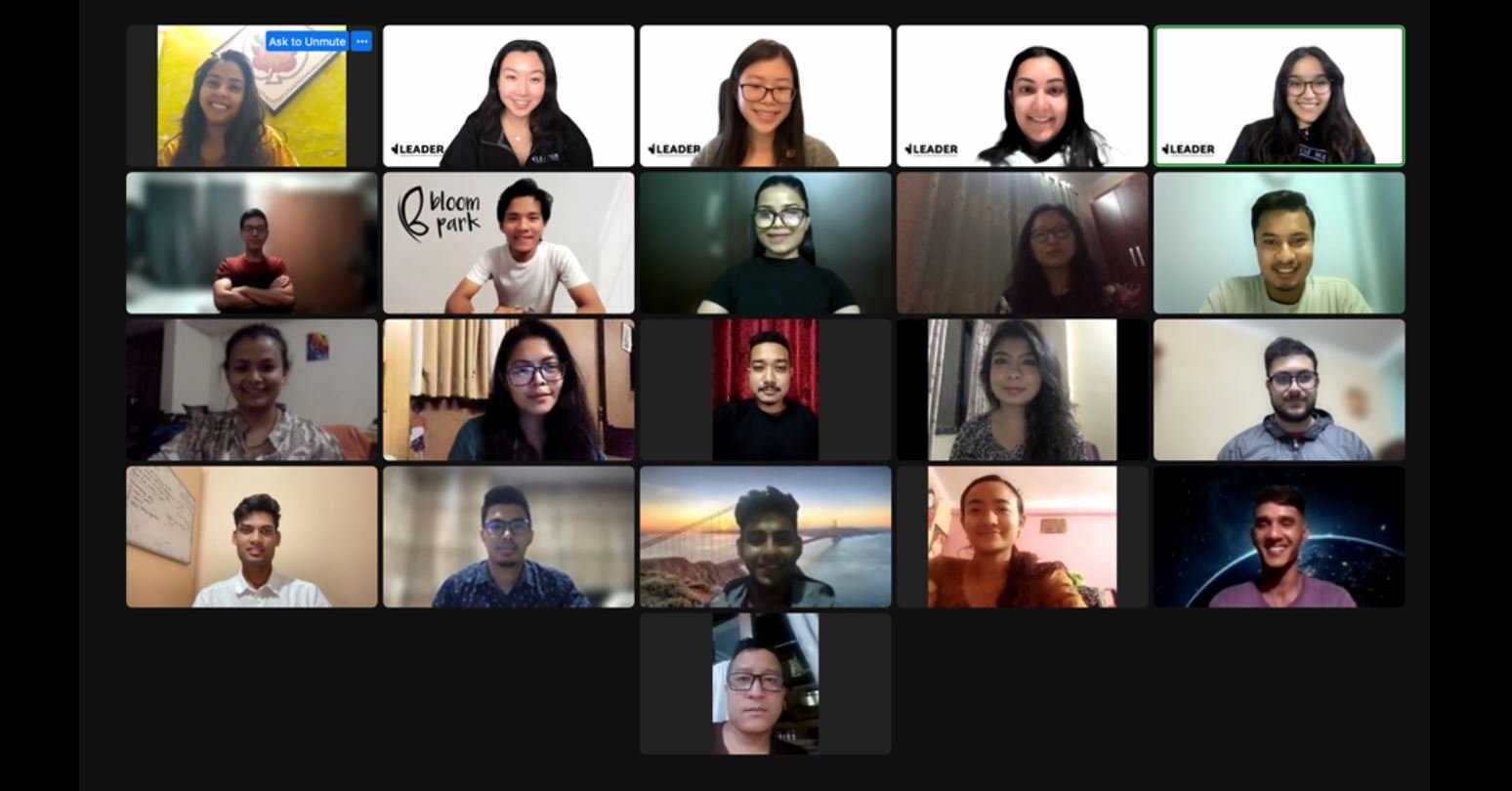
Last Day of Zoom Classes, Nepal, 2022
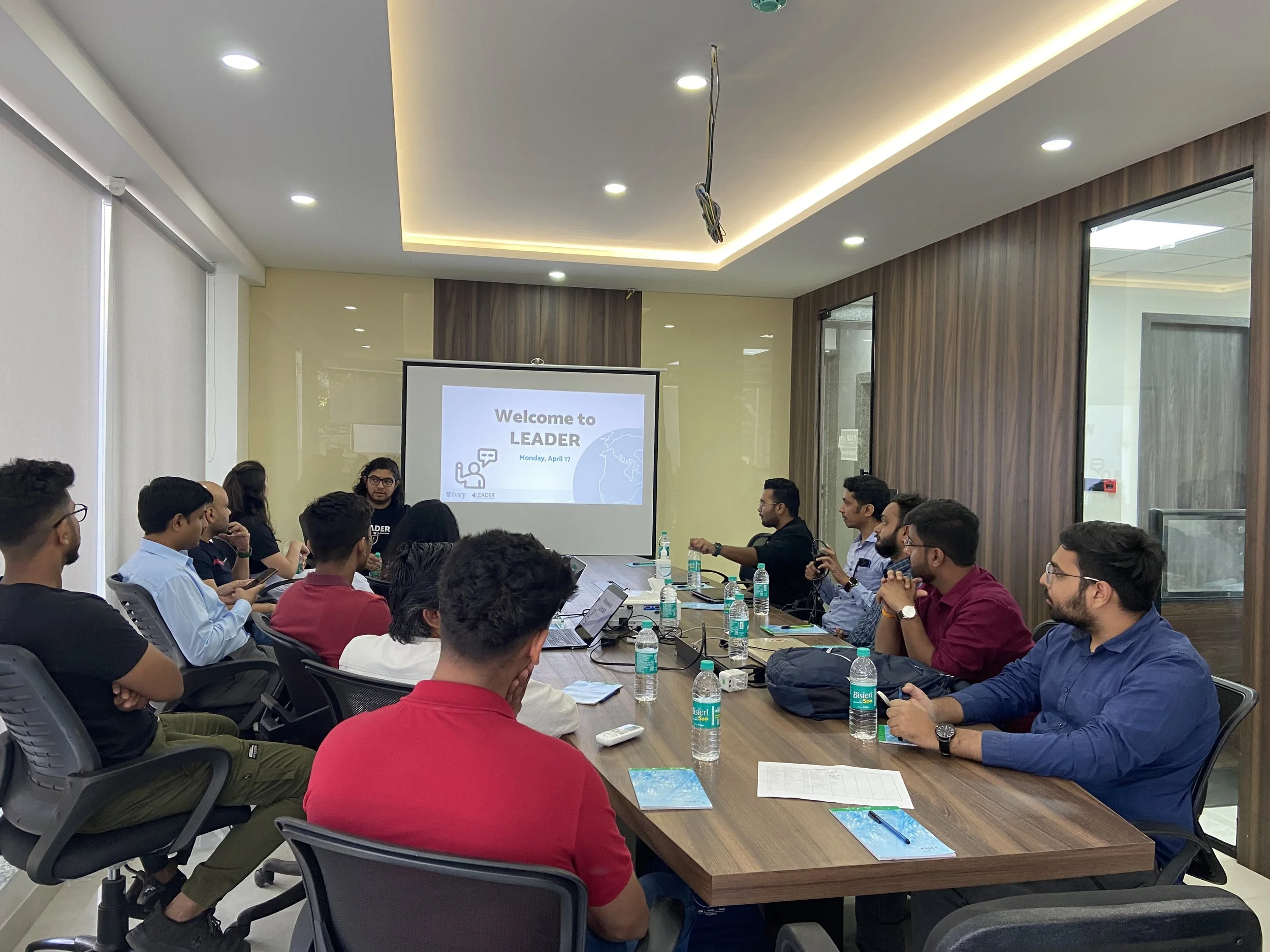
On Site Classroom, India, 2023

LEADERites Team, Nepal, 2023
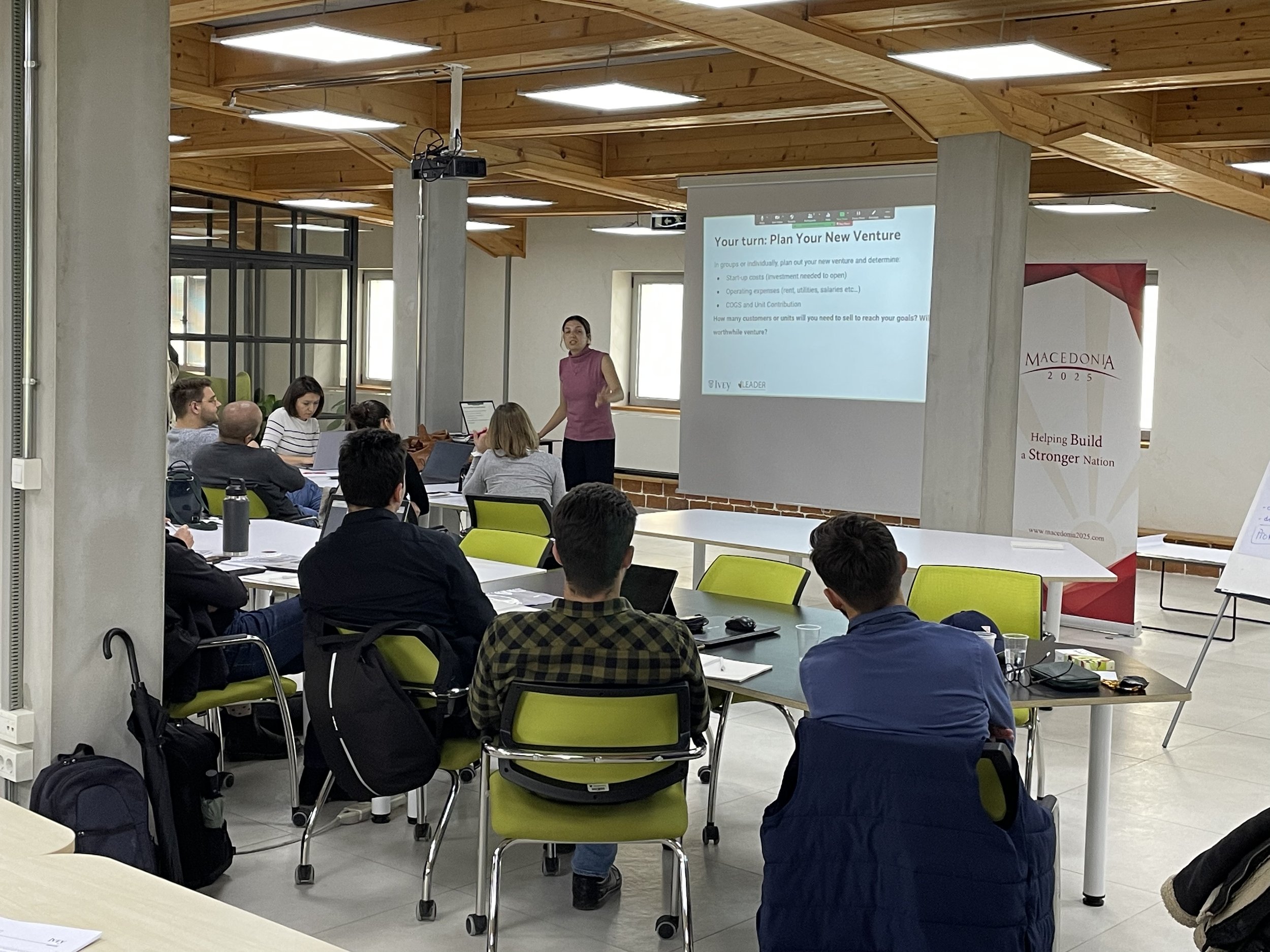
On Site Classroom, North Macedonia, 2023

Site Team, Serbia, 2023
2020s
In the most recent decade like the rest of the world, LEADER was heavily impacted by the global pandemic. The Project was canceled in 2020 for the first time since its inception, as the COVID-19 virus spread rapidly across the globe. In 2021, programming was conducted virtually at all sites, followed by a hybrid basis in 2022 as some sites returned to in-person teaching. Due to the hard work and commitment of the LEADER teams throughout those challenging years and the institutional guidance from the Advisory Board, the Project was able to emerge from that period and return to full teaching in 2023. Unfortunately, several sites were lost during this period and our 16-year Aeroplan sponsorship was discontinued by Air Canada. LEADER now looks to grow again and is seeking opportunities for new partners and new sites in new locations across the world. LEADER remains committed to its mission statement to coach and inspire promising entrepreneurs in frontier markets to envision, launch, and scale new ventures.
LEADER now boasts a LEADER Alumni base of more than 900 LEADERites and a collective student and entrepreneur participant alumnus base that exceeds 10,000.
